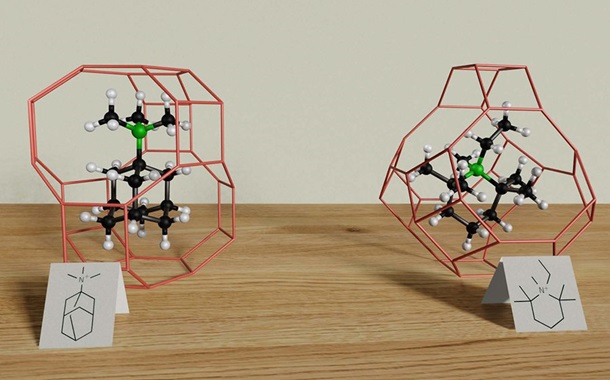Learner Assessment System in e-Learning with OBE Approach: Activity Performance, Ability Level and Recommendation
Downloads
Doi:10.28991/HIJ-2024-05-03-03
Full Text:PDF
Downloads
Dwi Yuniarti, W., Winarko, E., & Musdholifah, A. (2020). Data mining for student assessment in e-leaming: A survey. 2020 5th International Conference on Informatics and Computing, ICIC 2020, 348–354. doi:10.1109/ICIC50835.2020.9288533.
Kemendikbud, D. J. P. T. (2020). Guidelines for compiling the higher education curriculum in the industrial era 4.0 to support the independent campus learning program. The Directorate General of Higher Education, Ministry of Education and Culture Republik of Indonesia, Jakarta, Indonesia.
Salybekova, N., Abdimalik, S., Issayev, G., Khalikova, G., Berdenkulova, A., & Bakirova, K. (2023). E-Learning Adoption: Designing a Network-Based Educational and Methodological Course on "Humans and Their Health.” Emerging Science Journal, 7(6), 2097–2119. doi:10.28991/ESJ-2023-07-06-014.
Cerezo, R., Bogarín, A., Esteban, M., & Romero, C. (2020). Process mining for self-regulated learning assessment in e-learning. Journal of Computing in Higher Education, 32(1), 74–88. doi:10.1007/s12528-019-09225-y.
Bezhovski, Z., & Poorani, S. (2016). The Evolution of E-Learning and New Trends. Information and Knowledge Management, 6(3), 50–57.
Budiyanto, U., Hartati, S., & Azhari. (2018). e-Learning Model According to the Learning Style and Ability level of Students. Universitas Gadjah Mada, Yogyakarta, Indonesia.
Bryson, C., & Hand, L. (2007). The role of engagement in inspiring teaching and learning. Innovations in Education and Teaching International, 44(4), 349-362. doi:10.1080/14703290701602748.
Azimjonov, J. (2016). Evaluation of Distance Learning Students Performance Using Fuzzy Logic. Journal of Management Information Systems, 1(October), 87–97.
Wardoyo, R., & Yuniarti, W. D. (2020). Analysis of Fuzzy Logic Modification for Student Assessment in e-Learning. International Journal on Informatics for Development, 9(1), 29. doi:10.14421/ijid.2020.09105.
Qadir, J., Shafi, A., Al-Fuqaha, A., Taha, A. E. M., Yau, K. L. A., Ponciano, J., Hussain, S., Ali Imran, M., Muhammad, S. S., Rais, R. N. Bin, Rashid, M., & Tan, B. L. (2020). Outcome-based (engineering) education (OBE): International accreditation practices. ASEE Annual Conference and Exposition, Conference Proceedings, 2020-June, 28865. doi:10.18260/1-2--35020.
Andayani, S. (2017). ALiDT model for a decision support system based on fuzzy multiple criteria decision making in determining student learning outcomes profiles. Ph.D. dissertation, Department Computer and Electronics, Universitas Gadjah Mada, Yogyakarta, Indonesia.
Agustianto, K., Permanasari, A. E., Kusumawardani, S. S., & Hidayah, I. (2016). Design adaptive learning system using metacognitive strategy path for learning in classroom and intelligent tutoring systems. AIP Conference Proceedings, 1755, 70012. doi:10.1063/1.4958507.
Saito, T., & Watanobe, Y. (2020). Learning path recommendation system for programming education based on neural networks. International Journal of Distance Education Technologies, 18(1), 36–64. doi:10.4018/IJDET.2020010103.
Lara, J. A., Aljawarneh, S., & Pamplona, S. (2020). Special issue on the current trends in E-learning Assessment. Journal of Computing in Higher Education, 32(1), 1–8. doi:10.1007/s12528-019-09235-w.
Jacob, D., & Henriques, R. (2023). Educational Data Mining to Predict Bachelors Students' Success. Emerging Science Journal, 7(Special Issue 2), 159–171. doi:10.28991/ESJ-2023-SIED2-013.
Cerezo, R., Esteban, M., Sánchez-Santillán, M., & Núñez, J. C. (2017). Procrastinating behavior in computer-based learning environments to predict performance: A case study in Moodle. Frontiers in Psychology, 8, 1403. doi:10.3389/fpsyg.2017.01403.
Opre, D., Șerban, C., Veșcan, A., & Iucu, R. (2024). Supporting students' active learning with a computer based tool. Active Learning in Higher Education, 25(1), 135-150. doi:10.1177/14697874221100465.
Al-Shabandar, R., Hussain, A. J., Liatsis, P., & Keight, R. (2019). Detecting at-risk students with early interventions using machine learning techniques. IEEE Access, 7, 149464–149478. doi:10.1109/ACCESS.2019.2943351.
Waheed, H., Hassan, S. U., Aljohani, N. R., Hardman, J., Alelyani, S., & Nawaz, R. (2020). Predicting academic performance of students from VLE big data using deep learning models. Computers in Human Behavior, 104. doi:10.1016/j.chb.2019.106189.
Haiyang, L., Wang, Z., Benachour, P., & Tubman, P. (2018). A time series classification method for behaviour-based dropout prediction. Proceedings - IEEE 18th International Conference on Advanced Learning Technologies, ICALT 2018, 191–195. doi:10.1109/ICALT.2018.00052.
Hussain, M., Zhu, W., Zhang, W., & Abidi, S. M. R. (2018). Student Engagement Predictions in an e-Learning System and Their Impact on Student Course Assessment Scores. Computational Intelligence and Neuroscience, 6347186. doi:10.1155/2018/6347186.
Umer, R., Susnjak, T., Mathrani, A., & Suriadi, S. (2017). On predicting academic performance with process mining in learning analytics. Journal of Research in Innovative Teaching & Learning, 10(2), 160–176. doi:10.1108/jrit-09-2017-0022.
Okubo, F., Shimada, A., Yamashita, T., & Ogata, H. (2017). A neural network approach for students' performance prediction. ACM International Conference Proceeding Series, 598–599. doi:10.1145/3027385.3029479.
Yang, F., & Li, F. W. B. (2018). Study on student performance estimation, student progress analysis, and student potential prediction based on data mining. Computers and Education, 123(October), 97–108. doi:10.1016/j.compedu.2018.04.006.
Azizah, E. N., Pujianto, U., Nugraha, E., & Darusalam. (2018). Comparative performance between C4.5 and Naive Bayes classifiers in predicting student academic performance in a Virtual Learning Environment. 2018 4th International Conference on Education and Technology, ICET 2018, 1, 18–22. doi:10.1109/ICEAT.2018.8693928.
Riz, G., Santos, E. A. P., & de Freitas Rocha Loures, E. (2017). Interoperability assessment in health systems based on process mining and MCDA methods. Advances in Intelligent Systems and Computing, 569, 436–445. doi:10.1007/978-3-319-56535-4_44.
Van der Aalst, W., Adriansyah, A., & Van Dongen, B. (2012). Replaying history on process models for conformance checking and performance analysis. Wiley Interdisciplinary Reviews: Data Mining and Knowledge Discovery, 2(2), 182–192. doi:10.1002/widm.1045.
Ana, A., Yulia, C., Jubaedah, Y., Muktiarni, M., Dwiyanti, V., & Maosul, A. (2020). Assessment of student competence using electronic rubric. Journal of Engineering Science and Technology, 15(6), 3559–3570.
Ibáñez, J. C., Saiz, M. S. I., & Gómez, G. R. (2014). A proposal for skill evaluation via complex tasks in virtual learning environments. ACM International Conference Proceeding Series, 429–433. doi:10.1145/2669711.2669935.
Muktiarni. (2019). Android-based e-rubric to measure food service competence in vocational education. M.S. Thesis, Master of Vocational Technology Education, Universitas Pendidikan Indonesia, Bandung, Indonesia.
Brookhart, S. M. (2018). Appropriate Criteria: Key to Effective Rubrics. Frontiers in Education, 3(April), 22. doi:10.3389/feduc.2018.00022.
Ho, Y. Y., & Lim, W. Y. R. (2020). Educating Adult Learners: Bridging Learners' Characteristics and the Learning Sciences. Diversity and Inclusion in Global Higher Education: Lessons from Across Asia, 97–115. doi:10.1007/978-981-15-1628-3_4.
Herrera, F., & Martinez, L. (2000). An approach for combining linguistic and numerical information based on the 2-tuple fuzzy linguistic representation model in decision-making. International Journal of Uncertainty, Fuzziness and Knowldege-Based Systems, 8(5), 539–562. doi:10.1142/S0218488500000381.
Herrera, F., & Martinez, L. (1996). Brief Papers. Brain and Cognition, 32(2), 273–344. doi:10.1006/brcg.1996.0066.
Amelia, N., Abdullah, A. G., & Mulyadi, Y. (2019). Meta-analysis of student performance assessment using fuzzy logic. Indonesian Journal of Science and Technology, 4(1), 74–88. doi:10.17509/ijost.v4i1.15804.
Sudaryono, Rahardja, U., & Masaeni. (2020). Decision Support System for Ranking of Students in Learning Management System (LMS) Activities using Analytical Hierarchy Process (AHP) Method. Journal of Physics: Conference Series, 1477(2), 1–7. doi:10.1088/1742-6596/1477/2/022022.
Hasibuan, M. S., Abdul Aziz, R. Z., Dewi, D. A., Kurniawan, T. B., & Syafira, N. A. (2023). Recommendation Model for Learning Material Using the Felder Silverman Learning Style Approach. HighTech and Innovation Journal, 4(4), 811–820. doi:10.28991/HIJ-2023-04-04-010.
Klifartha, N. (2008). Redesign of the Assessment Module on the I-Elisa e-Learning System. Universitas Gadjah Mada, Yogyakarta, Indonesia.
Pusparini, M. D. (2020). Outcome Based Education (OBE) Online Learning with Molta. Refleksi Pembelajaran Inovatif, 2(2), 336–357. doi:10.20885/rpi.vol2.iss2.art5.
Mahbubul Syeed, M. M., Shihavuddin, A. S. M., Uddin, M. F., Hasan, M., & Khan, R. H. (2022). Outcome Based Education (OBE): Defining the Process and Practice for Engineering Education. IEEE Access, 10(9), 119170–119192. doi:10.1109/ACCESS.2022.3219477.
Yanes, N., Mostafa, A. M., Ezz, M., & Almuayqil, S. N. (2020). A machine learning-based recommender system for improving students learning experiences. IEEE Access, 8(ii), 201218–201235. doi:10.1109/ACCESS.2020.3036336.
Verma, S. K., Thakur, R. S., & Jaloree, S. (2017). Fuzzy association rule mining-based model to predict students' performance. International Journal of Electrical and Computer Engineering, 7(4), 2223–2231. doi:10.11591/ijece.v7i4.pp2223-2231.
Casas-Ramos, J., Mucientes, M., & Lama, M. (2024). REACH: Researching Efficient Alignment-based Conformance Checking. Expert Systems with Applications, 241(January 2023), 122467. doi:10.1016/j.eswa.2023.122467.
Park, G., Adams, J. N., & van der Aalst, W. M. P. (2022). OPerA: Object-Centric Performance Analysis. Lecture Notes in Computer Science (Including Subseries Lecture Notes in Artificial Intelligence and Lecture Notes in Bioinformatics), 13607 LNCS, 281–292. doi:10.1007/978-3-031-17995-2_20.
Jokonowo, B., Siti Fatonah, N., & Akhir, E. A. P. (2021). Conformance Checking of Dwelling Time Using a Token-based Method. Journal of Information Systems Engineering and Business Intelligence, 7(2), 129. doi:10.20473/jisebi.7.2.129-137.
Fnukal, K. (2021). Implementation of advanced process mining algorithms in .NET. Masaryk University, Brno, Czechia.
Adeyemo, S. a. (2010). Students' Ability Level and Their Competence in Problem-Solving Task in Physics. International Journal of Educational Research and Technology, 1(December), 35–47.
Herath, D., & Jayarathne, L. (2018). An Architecture for a Personalized Learning Recommendation on Knowledge Levels of Learner. International Journal of Scientific & Engineering Research, 9(6). 98-103.
Wang, X., Gulenman, T., Pinkwart, N., De Witt, C., Gloerfeld, C., & Wrede, S. (2020). Automatic assessment of student homework and personalized recommendation. Proceedings - IEEE 20th International Conference on Advanced Learning Technologies, ICALT 2020, 150–154. doi:10.1109/ICALT49669.2020.00051.
Yuniarti, W. D., Hartati, S., & Priyanta, S. (2022). a Preliminary Learner Assessment Framework on E-Learning. ICIC Express Letters, 16(7), 705–712. doi:10.24507/icicel.16.07.705.
Yuniarti, W. D., Hartati, S., Priyanta, S., & Surjono, H. D. (2023). Data Unification Utilizing E-Rubric for Learner Assessment on E-Learning with OBE Approach. ICIC Express Letters, 17(8), 927–935. doi:10.24507/icicel.17.08.927.
Goghari, V. M., & Landrum, R. E. (2021). Teaching psychology (Editorial). Canadian Psychology, 62(4), 345–347. doi:10.1037/cap0000310.
Widhiarso, W. (214). Categorizing data using hyphothetical statistics and empirical statistics. Faculty of Psychology, Universitas Gajah Mada, Yogyakarta, Indonesia.
Yuniarti, W. D., Hartati, S., Priyanta, S., & Surjono, H. D. (2022). Utilization of Linguistic Data for Learner Assessment on e-Learning: Instrument and Processing. 2022 7th International Conference on Informatics and Computing, ICIC 2022, 329–333. doi:10.1109/ICIC56845.2022.10006977.
- This work (including HTML and PDF Files) is licensed under a Creative Commons Attribution 4.0 International License.





















